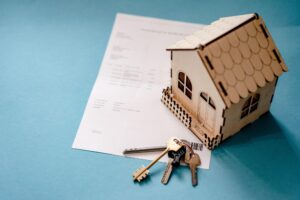If your home maintenance and repair costs have become unbearable, you can reduce spending, explore financial support, or sell your house as-is for cash. Each option can help you regain control and protect your property value.
Homeowners in the U.S. face home maintenance and repair costs of more than $8,800 per year, according to Bankrate’s Hidden Costs of Homeownership Study. Those mounting bills can crush your budget faster than expected.
You care about protecting your home and your savings. Yet rising property expenses can leave you feeling trapped. Constant repairs drain your wallet and your peace of mind. A clear path forward can restore stability, whether through smarter budgeting, tapping into help, or choosing a fresh financial route.
Rising costs don’t have to leave you stuck in place. If you’re ready to find a better way, read on to discover your best next move.
Reassess Your Household Budget
When home maintenance costs feel overwhelming, the first step is looking closely at where your money goes. Many homeowners spend without realizing how much disappears into small recurring bills. Tightening your budget can free up more than you expect.
Start by writing down every monthly expense. Then divide those costs into essentials and non-essentials. Essentials include food, mortgage, insurance, and utilities. Non-essentials are streaming subscriptions, extra dining, or impulse shopping. Cutting back in a few areas can create space for repair funds.
Some homeowners use percentage-based budgeting to keep a balance. That method sets aside a fixed share of income for needs, savings, and wants. A healthy structure can make repair costs less crushing.
Practical steps to try:
- Cancel unused services
- Negotiate utility rates
- Review insurance plans
- Switch to generic products
- Plan meals weekly
Small savings stack up quickly and can cover unexpected repair bills. You’ll notice breathing room return to your budget once waste is cut. And that relief makes facing property expenses less stressful. Keeping a clear budget also reveals if selling your house makes better financial sense down the road.
Explore Assistance and Financing Options
When repair bills grow too large, outside help can make a difference. Many states and local programs offer grants or low-interest loans to homeowners. These can cover emergency repairs like roofing, plumbing, or heating.
Start by checking your county housing office or local community development program. Nonprofit groups may also provide funds for critical fixes, especially for seniors or low-income households. Banks and credit unions sometimes offer home improvement loans with manageable terms.
Possible avenues include:
- State repair grants
- Nonprofit aid programs
- Energy-efficiency rebates
- Home equity lines
- Credit union loans
Support programs can buy you time and reduce financial pressure. Instead of sinking deeper into debt, you can handle urgent repairs without draining your savings. Exploring all your options may uncover hidden resources.
Accessing aid keeps your property value steady and prevents damage from getting worse. The sooner repairs happen, the less money you’ll spend later. If help is available in your area, using it wisely can ease the load and give you breathing room to decide what comes next.
Prioritize Essential Repairs First
Not all repairs demand equal attention. Some issues can wait, while others threaten safety and structure if ignored. Learning to tell the difference will save money and stress.
Critical problems usually involve water, electricity, or the foundation. Leaky roofs, faulty wiring, or structural cracks require immediate action. Cosmetic issues like paint or landscaping can move down the list until finances improve.
Quick ways to rank repairs:
- Health and safety risks
- Risk of further damage
- Effect on daily living
- Cost compared to value
- Ease of postponing
Focusing on what matters most prevents small problems from growing into disasters. Spending where it counts protects your investment while reducing unnecessary bills.
When property expenses stretch your budget, prioritize what keeps the home livable and safe. Everything else can follow once finances improve or if you choose to sell your house as-is. Clear priorities give you confidence that your money is going to the right repairs at the right time.
Consider Selling Items to Fund Repairs
When money feels tight, selling unused items can free up quick cash. Many households store valuables that rarely get touched but still hold solid resale value. Turning those into repair funds keeps your budget balanced without adding debt.
Popular items that resell well include electronics, power tools, collectibles, and jewelry. Furniture or exercise equipment can also attract buyers locally. Even small sales add up when you have several items to part with.
Places to sell quickly:
- Online marketplaces
- Local pawn shops
- Community sales groups
- Consignment stores
- Garage sales
Hidden assets in your home can be a lifeline during tough times. Instead of borrowing more, you create repair funds from items you no longer need.
Selling belongings also clears clutter and opens space. That shift can make the home feel fresher, which adds appeal if you later decide to sell your house. By turning unused possessions into money, you create a flexible cushion that eases property expenses while avoiding new bills.
Evaluate Whether Selling Your House Makes Sense
Sometimes, keeping up with constant repairs drains more than your wallet. Stress builds, and peace of mind fades. In those cases, selling your house as-is may be the smartest move.
Selling directly to a cash buyer removes the hassle of costly fixes and lengthy listings. You avoid agent commissions, long waits, and endless repair demands from buyers. A quick sale means fast relief and more control over your future.
Signs selling could be right:
- Repairs exceed income
- Major systems failing
- Inherited property stress
- Falling behind on payments
- Desire for a fresh start
Letting go can open the door to new financial stability. Instead of sinking deeper into property expenses, you release the weight of ongoing repairs.
Weigh the Impact on Property Value
Every repair decision connects to long-term property value. Some fixes boost curb appeal and resale potential, while others drain cash without much return. Knowing where to put money helps protect equity.
Big-ticket repairs like roofs, plumbing, or HVAC usually raise buyer confidence. Cosmetic updates, such as fresh paint or new fixtures, may add charm but bring lower returns. The key is balancing safety needs with value gains.
Ways repairs influence value:
- Strong buyer confidence
- Higher appraisal results
- Faster market sales
- Lower inspection issues
- Improved living comfort
Smart repair choices protect both your wallet and your investment. Spending wisely means your money works harder for you.
Protect Your Health and Safety
When expenses climb, it may feel tempting to delay everything. But ignoring repairs that affect health and safety carries steep risks. Protecting well-being should always come first.
Issues like mold, asbestos, faulty wiring, or gas leaks endanger everyone inside. Even smaller problems, like persistent leaks, can spark health troubles or lead to structural rot. Delaying those repairs often costs more in the long run.
Health-focused priorities include:
- Air quality concerns
- Electrical hazards
- Plumbing leaks
- Roof integrity
- Pest infestations
Frequently Asked Questions
What are the most expensive home repairs?
Some of the costliest home repairs include roof replacement, foundation repairs, plumbing system overhauls, and major HVAC replacements. These repairs often run into the thousands and can be a heavy strain if your budget is already stretched.
Roof repairs are especially expensive when water damage spreads into insulation or ceilings. Foundation work also gets costly because it requires specialized labor and equipment. HVAC systems, when replaced, often reach five-figure price tags.
Can selling a house as-is affect the selling price?
Yes, selling as-is usually lowers the market price because buyers expect to handle repairs themselves. However, the tradeoff is speed and simplicity. Cash buyers often value convenience and are willing to close quickly.
If you need immediate relief from mounting property expenses, the slight drop in price can be worth it. You avoid repair costs, agent fees, and long waits for a traditional buyer.
How do I decide between repairing and selling?
Start by estimating repair costs and comparing them to the current property value. If repairs cost more than you can recover in value, selling may be smarter.
Also, weigh your stress levels and financial flexibility. If ongoing bills affect your quality of life, selling your house can bring peace of mind.
Are there programs that help with emergency repairs?
Many local housing authorities offer repair grants for low-income households. Some nonprofits provide funding for seniors or those with inherited property. Energy-efficiency rebates may also help cover upgrades.
Exploring government and state-level programs can uncover unexpected support. While funds may be limited, they can help bridge the gap until you decide on your next step.
Finding Relief from Home Maintenance and Repair
Facing ongoing home maintenance and repair costs can feel like an endless cycle, but you have options. Whether you cut expenses, seek support, or decide to sell your house as-is, each path offers a way out of the stress.
At We Buy Houses Memphis, a single form can turn stress into freedom; within 24 hours, you’ll have a cash offer in hand, free from repairs, agents, or hidden costs. Close when life feels right; the timeline is yours, not the market’s. Step into a smoother tomorrow with the kind of ease only We Buy Houses Memphis can bring; contact us now to request your cash offer.







